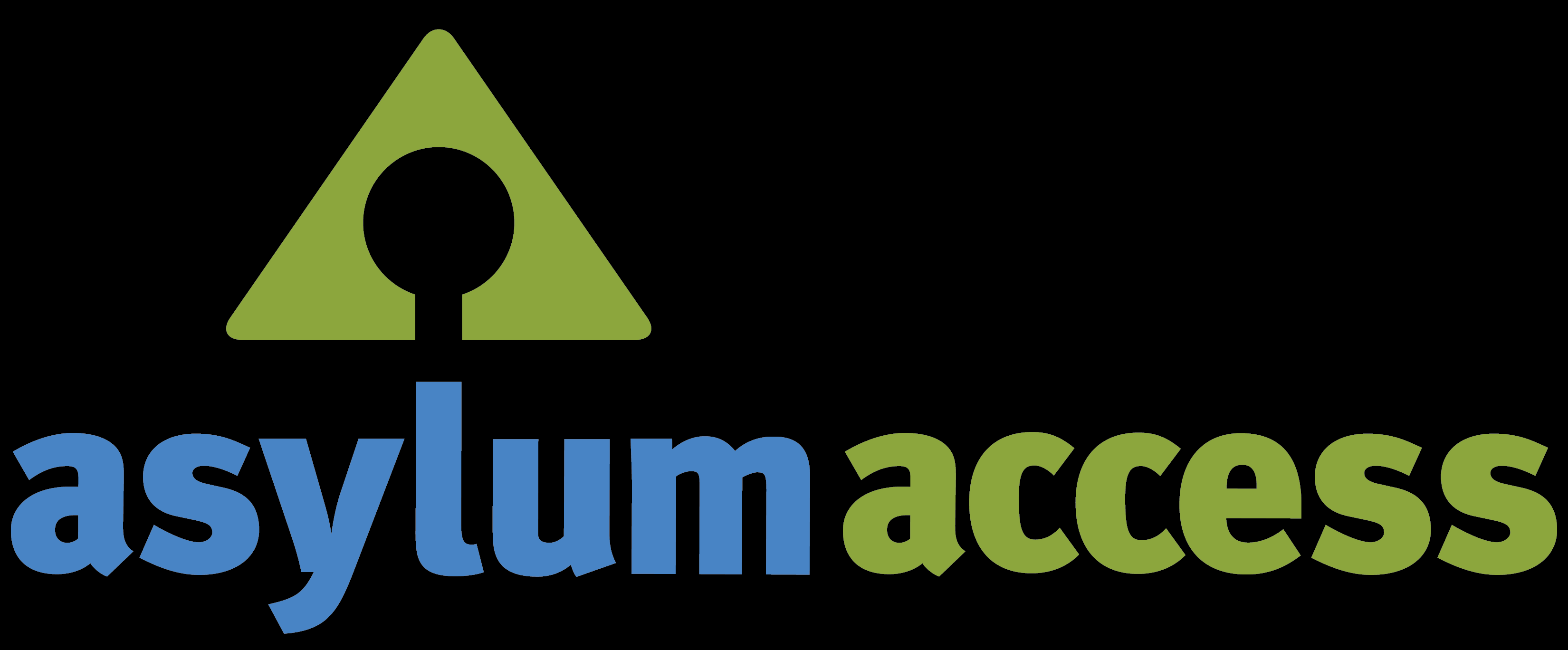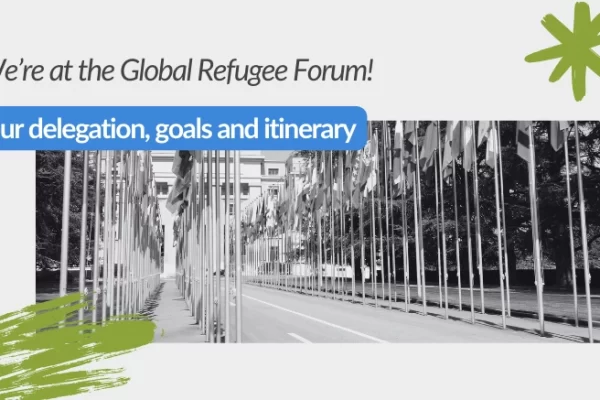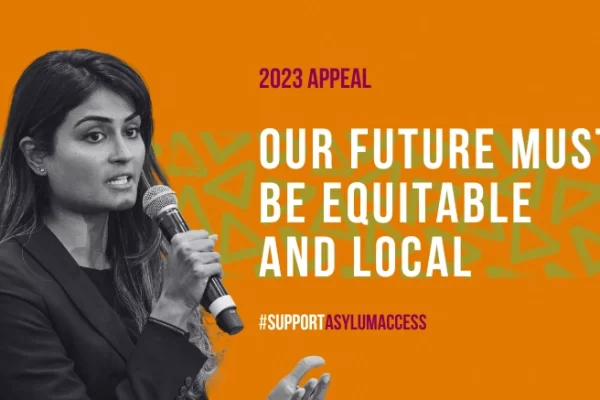Regional Advocacy: Cartagena +30 Civil Society Initiative
Ahead of the 30th anniversary of the Cartagena Declaration next year, Asylum Access Ecuador (AAE) is one of three organizations leading the Cartagena +30 Civil Society Initiative, a research project to identify and propose strategies to improve the protection and social inclusion of refugees, internally displaced persons (IDPs) and stateless persons in the Americas.
Led also by Sin Fronteras I.A.P from Mexico and the Asociación de Consultores y Asesores (ACAI) from Costa Rica, the project has seen support from over thirty organizations from fifteen countries in the region, including members of the Central American Regional Network of Civil Society Organizations on Migration (RRCOM) that groups together over 300 organizations.


Governments in the region have agreed to mark the anniversary by working on a new declaration and plan of action to tackle emerging protection challenges. Grassroots experiences and civil society positions will be central in the preparation of what will ultimately form a proposals document, transmitting refugee voices to international fora: primarily UNHCR’s 2014 regional consultations, but also to key multilateral organizations such as Unasur, Mercosur, the Andean Community of Nations, CARICOM, the Organization of American States, and the Inter-American Human Rights system for additional perspectives and discussion. Participating organizations will investigate the issues faced by refugees, asylum seekers and others in need of international protection through in-depth research within the countries in which we operate.
In Ecuador, AAE has already conducted two focus groups, in Quito and in San Gabriel near the Colombian border, in order to gauge and represent refugees’ greatest concerns. All refugees consulted highlighted the challenges of securing employment, while those in Quito – primarily refugees from Colombia, but also from as far afield as Nigeria – spoke of their worries about obtaining regular migration status. In San Gabriel, we encountered refugees from indigenous communities, who told us about their struggles to access healthcare and housing. These preliminary findings will be compared with outcomes from similar exercises in Mexico, Nicaragua, Costa Rica, Dominican Republic, Brazil, Argentina and elsewhere, enabling us to craft well-informed recommendations for comprehensive and viable policy and legal change in the Americas, and to promote practical solutions for forced migrants.
Interviews with key civil society organizations working directly with these communities will complement refugees’ direct input into the proposals. These conversations will focus on emerging challenges arising from new rights violations, such as the growing use of immigration detention, and displacement induced by phenomena such as natural disasters and organized criminal activity. In addition, we will explore innovative responses to pressing issues including naturalization, access to justice and rights, security, discrimination and integration.
This initiative follows our regional policy advocacy efforts on refugee status determination procedures presented earlier this year in the Americas, as well as a public hearing on ‘The Human Rights Situation of Refugees in the Americas” before the Inter-American Commission on Human Rights on October 31st.
With protection gaps mapped, the highest regional standards celebrated as but a starting point, and our most creative solutions highlighted and drawn into a regional document, we look forward to taking our reflections to those with the power to alter policy and laws, and to pushing for improvements across the board, in the name of refugees, IDPs and stateless individuals seeking protection in the Americas.
AAE would like to thank our policy advocacy and strategic litigation volunteers who have driven this project, including Morris Weisselberg, Sophie Dekker, Lena Goergen, Laura Just, Nils Breton and the Volunteer Leadership Associates Laura Belfiore and Liz Willis.
By Asylum Access Ecuador Country Director Karina Sarmiento and Program Associate Laura Parker





